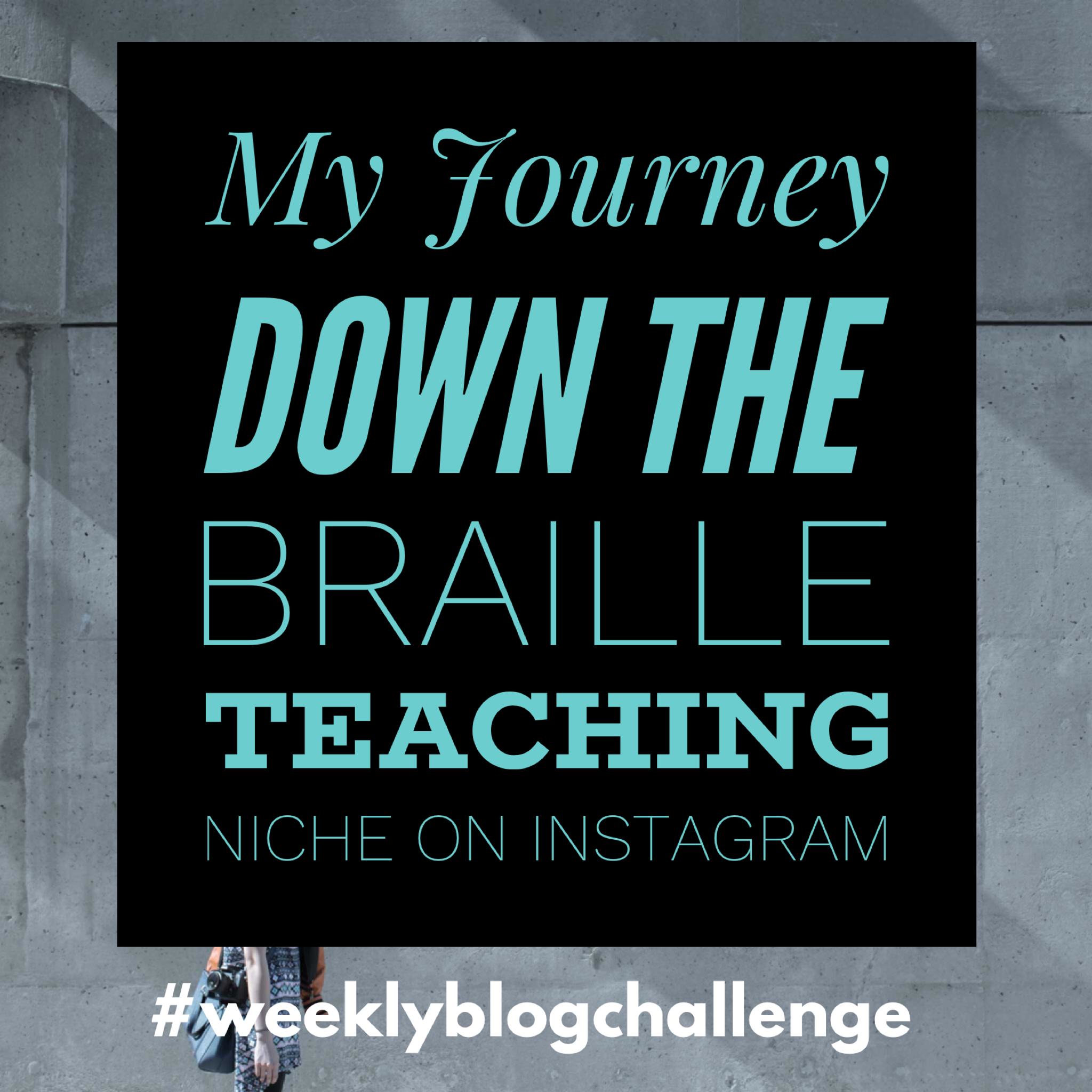Whether you’re an education student at university, a beginning teacher or an experienced veteran of classroom, tutoring is a great way to earn some extra money. Let’s be honest, every dollar helps whether it would be towards making ends meet or saving up for that holiday you’ve always dreamed about. My experience on this topic comes from 10 years of primary school teaching in addition to thousands of hours tutoring students ranging from year three to year twelve (based on subjects I felt comfortable with). In this blog post I’m going to talk about: the legal/ethical implications associated with tutoring, how to get started, what to charge, what to bring to your tutoring sessions and any other tips that will help jump start your own private tutoring business. So lets get started shall we?
Legal & Ethical Issues
Let’s not beat around the bush, tutoring is one of the services that make up the ‘cash economy’ in Australia. Pay in cash, spend in cash and no one is none the wiser, aside from the fact that it’s tax evasion. If you are going to start tutoring professionally, then do it the right way. Speak to an accountant about registering for an Australian Business Number (ABN) for taxation purposes. I’ve always declared my tutoring income even though it would be pretty easy to avoid the eye of Sauron *cough*, sorry, the Australian Taxation Office (ATO). Declaring your income does have its benefits. Any expenses that you incur as a result of your secondary employment are deductable from your taxable income. I have been able to deduct a portion of the costs associated with my: mobile phone, Internet connection, electricity bills and the fuel from my car as a result of driving to students’ houses. I have also been eligible for higher loans thanks to the extra income I was earning. So if you are tutoring make sure you do it right and speak to an accountant!
Next you will need to notify your employer that you are requesting permission to undertake outside employment or secondary employment as it used to be known. In public schools this means informing your principal/line manager and the Department of Education via a form called ‘Outside Employment’. This can be found on the Department’s intranet under resources in the forms section. Declaring outside employment, from both my experience and the experience of others, is more of a formality. Some teachers feel that ‘It’s none of the government’s business what you do outside of school’. This may be true however their motivation for playing ‘big brother’ is simple. It’s basically a declaration that you will put your job first. I’ve heard of teachers being granted permission for: tutoring, army reserves and selling Thermomixes. Examples of permission for outside employment being denied, that I personally know of, include: pizza delivery work, driving a taxi/Uber and working at TAFE (taking a class) while being fully employed by the Department of Education. So as long as your hours are not too long, you put your job as a teacher first and that you don’t solicit work from your employer, you should be fine.
Lastly on the topic of ethics, I have never privately tutored a student from my school with the exception of two students at the request of the Department of Child Protection. Let me tell you why. Let’s say you start a tutoring relationship with a student from your class and you - I don’t know - give them a heads up about future programming plans and help them with the work you assign. This extra help in addition to your inside knowledge ‘could’ be seen as providing an unfair advantage to a student that is not equally provided to the rest of your class. Then imagine if your relationship with the student’s parent went sour or another parent caught wind of your tutoring arrangement and complained. I personally would not be comfortable with this situation or any fallout that would eventuate. I don’t know the answer as to whether this situation is ok or not but I will say that it is a professionally grey area, so it’s best to avoid this sort of arrangement just to be safe.
How to get started
I started tutoring in 2008 through a tutoring centre for Indigenous students based in Karratha. When I moved back to Perth in 2009 I then went through a tutoring agency to seek out my first set of students. If you do go through an agency you will have to pay them a ‘finder’s fee’ which is usually worth two hours of tuition. Over time, word of mouth spread and I become fully booked. I no longer required the assistance of an agency for work and my private tutoring business had become self-sustaining. If you are good at what you do, you won’t need to advertise. It also doesn’t hurt to show them that you’re fully qualified on the TRB’s website.
What to charge
If you hold a teaching qualification (Bachelor of Education or a Graduate Diploma of Education), do not charge under $50. Don’t. Do. It. If you do so, you are selling yourself short and it means you lack confidence in your teaching ability. Not only that, you are also under cutting the whole teaching industry regarding pay. There are lawyers who charge over $400/per hour for their work! $400 dollars! Take it from me; parents are willing to pay in excess of $50/per hour. I started out charging $50/per hour in 2009. Presently, I charge $60/per hour to account for taxes & costs. When you factor in the costs of work associated with tutoring like: an iPad, apps, stationery and fuel, $60/per hour is very reasonable. I have come across specialist tutors, like year twelve Physics teachers, who charge $70/per hour. I’ve even heard of someone paying $100/per hour, however I do think that is a bit excessive as such a price does not meet the market’s expectations. So pick your rate and stay firm on it! As the saying goes, ‘if you pay in peanuts, you’ll get monkeys’. You’re a professional and you’re worth it! Oh, always set a timer (thanks J.K.).
What to bring
When I teach and tutor I always bring my carry on luggage bag with me. Inside my bag is: a exercise book for working out, an A4 whiteboard with markers, my daily work pad, a USB stick (for any resources parents might want), some iPad adapters and an iPad. An iPad is a must, it really is. There are so many outstanding apps that can be used for tutoring. You name it, there’s probably an app for that. See my blog about top five Maths apps, and the recommended iPads apps section of my website. One of the benefits of such an approach is that you can massively reduce the amount of paper you are printing off. Not only that but you can pass on these apps to parents for additional work that they can do at home. It’s also good to have a packet of Nurofen and Panadol for when a headache strikes. There is nothing worse than tutoring or teaching with a headache. If you haven’t done so, make the change to a carry on luggage bag, in the long run your back will thank you for it.
Cancellations of sessions
As you accumulate the hours you will have the odd session that is cancelled at the last possible minute. While this can be annoying it pays to be diplomatic and here’s why. A few years ago I had a parent cancel tutoring suddenly. I knocked on the door and dad/mum said ‘Oh my gosh, I forgot to cancel, Joe Bloggs is sick’. I kept my composure and mentioned that it was all right, this sort of thing happens. People forget from time to time and parents are human too. Most parents will, without prompting, offer a cancellation payment for the inconvenience. This parent did not offer a cancellation payment however your parents will make up for these sorts of things in other ways, most importantly by recommending you to their own network of family, friends and peers. From this family I have mentioned above, I have gained 3 new tutoring families in addition to snacks and countless coffees over the years; as the saying goes ‘goodwill breeds goodwill’. So the inconvenience a sudden cancellation and not requesting a cancellation payment was worth it in the long run.
Late payments
Regarding late/non-payment it’s good to give parents the benefit of the doubt; 99.99% of the time they will pay you back however I strongly recommend that you keep a written record of payments. For example, I had one parent who claimed that I was paid for two weeks when in fact it was one. A string of late payments without dates attached to the electronic transfers was responsible for the misunderstanding. Again, diplomacy pays off. To resolve this respectful disagreement I produced a spreadsheet of all the dates I tutored in addition to screenshots of the payments I received. Long story short, the parent agreed with the evidence I presented and the late payment was received. I have only encountered genuine non-payment twice and to be honest I did not pursue the matter. Both situations were towards the end of the year and occurred because payment was not collected immediately from the parent despite reminders each following session. Although, when one of these parents asked for some advice a while back her message went unanswered. Like I said earlier ‘goodwill breeds goodwill’ thus I’m not prepared to help out parents who abuse this relationship.
Cancellation of contract
There will also come a time where a parent will have to cancel the weekly contract they have made with you. I know I keep saying this, but diplomacy matters. Quite often it will be due to financial pressures the family may be under. A couple of FIFO families cancelled on me last year due to the father being made redundant. When a parent cancels make sure you’re polite and considerate, I can guarantee you that they are feeling just as awful as you are about the cancellation. Sometimes they come back - I once had a family rehire me after a year-long break after their father found a new job. You may also get cancellations because of the child themselves. I previously tutored two unmotivated students whose parents were at their wit’s end. While I was able to help both of them with their organisation and their understanding of concepts, if they’re unmotivated (no actions and all talk) and not really interested in improving despite your best efforts, then there is not much you can do about it. Hence the saying ‘you can lead a horse to water but can’t make it drink.’ The parents of both students directly cited their child’s attitude when cancelling although in one situation, if I’m being upfront, a parent was pressuring their child to pursue a career pathway that he/she was not interesting in doing at all.
How tutoring helps your teaching
Tutoring has had one of the biggest impacts, aside from classroom experience, on my teaching pedagogy. It really has, so let me fully explain this. I’ve probably tutored about 20-25 students and during this time I have been able to gain insights into 20-25 classrooms and the teaching pedagogy their teachers have used. I have learnt the lattice methods of multiplication from one student, innovative multiplication tricks from another and I’ve ‘stolen’ ideas for how to teach a persuasive text. These sorts of experiences have helped my teaching programmes enormously. It has also helped me refine how I explain concepts to my own students. There is a quote by Albert Einstein that states ‘if you can't explain it simply, you don’t understand it well enough.’ This is a quote I aim to teach by.
The inspiration I took from this quote was to teach things: simply, clearly and effectively or as I like to say, take Occam’s razor to how you teach things. There is nothing more thrilling than seeing a technique you have used in tutoring pay off in your own classroom of 25-30 students. Finally on a less positive note, I’ve also had my fair share of students who have been unfairly written off by some of their classroom teachers and the schools that they have attended. I know we hit autopilot with our jobs sometimes but we have an enormous impact on how a student and their family feel towards education. I cannot begin to tell you how angry it makes me feel when a student has been labelled as something they are not!
One final comment that is pretty interesting, about half of my parents are teachers! I used to think that these teachers were bloody lazy. Why would a teacher need another teacher to teach their child? But imagine how you were as a child when your parents tried to teach you something. Did you always listen to your parents? I know I found my mother’s driving lessons to be absolutely infuriating and she’s still a backseat driver to this day. This is when we need to get in someone else to help teach our children. I know my attempt at teaching my oldest daughter how to swim was a complete failure. This was, as with the other situations I described, due to the pre-existing parent-child bond. Charlotte just wanted to play around with me, not to learn how to swim. So don’t pass judgement too quickly when you accept the work, even if one of your parents just happens to be one of the best teachers in the world.
Well I know that this blog post has been a long one but wanted to give all of you a comprehensive understanding of tutoring and what is involved, or as I like to say ‘to reach my point in your education career sooner’. Please let me know what you thought of the blog and thanks for reading.
If you think this website is awesome then please ...
Bookmark this page.
Follow us on Instagram | @griffin_edu
Like and follow us on Facebook | @griffineducationenterprises
Follow us on Twitter | @Griffin_Edu
Follow us on Pinterest | Griffin Education Enterprises
Join our mailing list down below.
Consider supporting us on Patreon.
And most importantly, share this website with other educators!















Concerned about what precautions you should take to protect your professional image? Then read this blog to find out how.